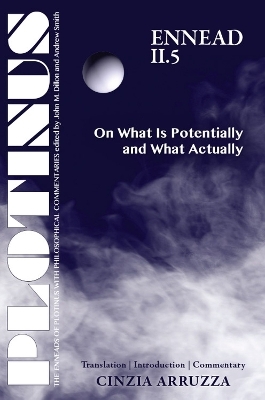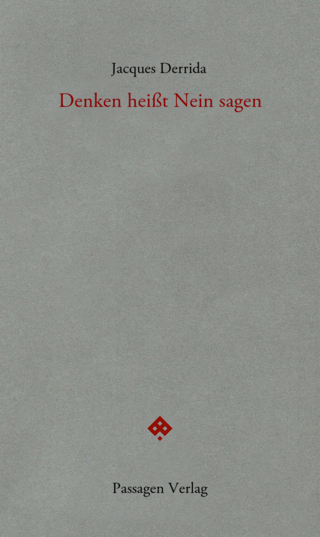
Plotinus Ennead II.5
On What Is Potentially and What Actually
Seiten
2015
Parmenides Publishing (Verlag)
978-1-930972-63-6 (ISBN)
Parmenides Publishing (Verlag)
978-1-930972-63-6 (ISBN)
The term dunamis (potentiality) entered into the philosophical vocabulary with Plato, but it was with Aristotle that it acquired, together with energeia (actuality), the strong technical meaning that the two terms have maintained, with variations, throughout subsequent philosophical tradition.
The significance of the notions of actuality and potentiality in Plotinus’ thought can hardly be overstated. Throughout the Enneads, they are crucial to understanding the specific causality of intelligible realities and the relation of participation between intelligible and sensible realms.
In Ennead II.5, Plotinus for the first time provides a systematic clarification of his peculiar use of these terms, through a sustained revision of Aristotle’s own elaboration of the topic and of his terminology. The treatise discusses the different meanings of potentiality and actuality as well as the way each of them applies or does not apply to the sensible realm, to the intelligible realm, and to matter.
While the structure of the text unfolds in a coherent and cohesive manner, Plotinus’ writing in this treatise is dense and at times dry in its technicality. The detailed commentary guides the reader step by step, making an otherwise particularly difficult text accessible.
The significance of the notions of actuality and potentiality in Plotinus’ thought can hardly be overstated. Throughout the Enneads, they are crucial to understanding the specific causality of intelligible realities and the relation of participation between intelligible and sensible realms.
In Ennead II.5, Plotinus for the first time provides a systematic clarification of his peculiar use of these terms, through a sustained revision of Aristotle’s own elaboration of the topic and of his terminology. The treatise discusses the different meanings of potentiality and actuality as well as the way each of them applies or does not apply to the sensible realm, to the intelligible realm, and to matter.
While the structure of the text unfolds in a coherent and cohesive manner, Plotinus’ writing in this treatise is dense and at times dry in its technicality. The detailed commentary guides the reader step by step, making an otherwise particularly difficult text accessible.
Cinzia Arruzza is Assistant Professor of Philosophy at the New School for Social Research, in New York City, USA. She received her Ph.D. from the University of Rome “Tor Vergata” and subsequently studied at the Universities of Fribourg (Switzerland) and Bonn (Germany). She has a special interest in ancient metaphysics and political philosophy, with a particular focus on Plato, Aristotle, Plotinus, and Patristic thought. She is the author of Les Mésaventures de la théodicée. Plotin, Origène et Grégoire de Nysse (Turnhout: Brepols Publishers, 2011).
| Erscheint lt. Verlag | 31.7.2015 |
|---|---|
| Reihe/Serie | The Enneads of Plotinus |
| Verlagsort | Las Vegas |
| Sprache | englisch |
| Maße | 127 x 191 mm |
| Gewicht | 260 g |
| Themenwelt | Geisteswissenschaften ► Philosophie ► Erkenntnistheorie / Wissenschaftstheorie |
| Geisteswissenschaften ► Philosophie ► Metaphysik / Ontologie | |
| Geisteswissenschaften ► Philosophie ► Philosophie Altertum / Antike | |
| ISBN-10 | 1-930972-63-6 / 1930972636 |
| ISBN-13 | 978-1-930972-63-6 / 9781930972636 |
| Zustand | Neuware |
| Informationen gemäß Produktsicherheitsverordnung (GPSR) | |
| Haben Sie eine Frage zum Produkt? |
Mehr entdecken
aus dem Bereich
aus dem Bereich
die Grundlegung der modernen Philosophie
Buch | Softcover (2023)
C.H.Beck (Verlag)
CHF 25,20


